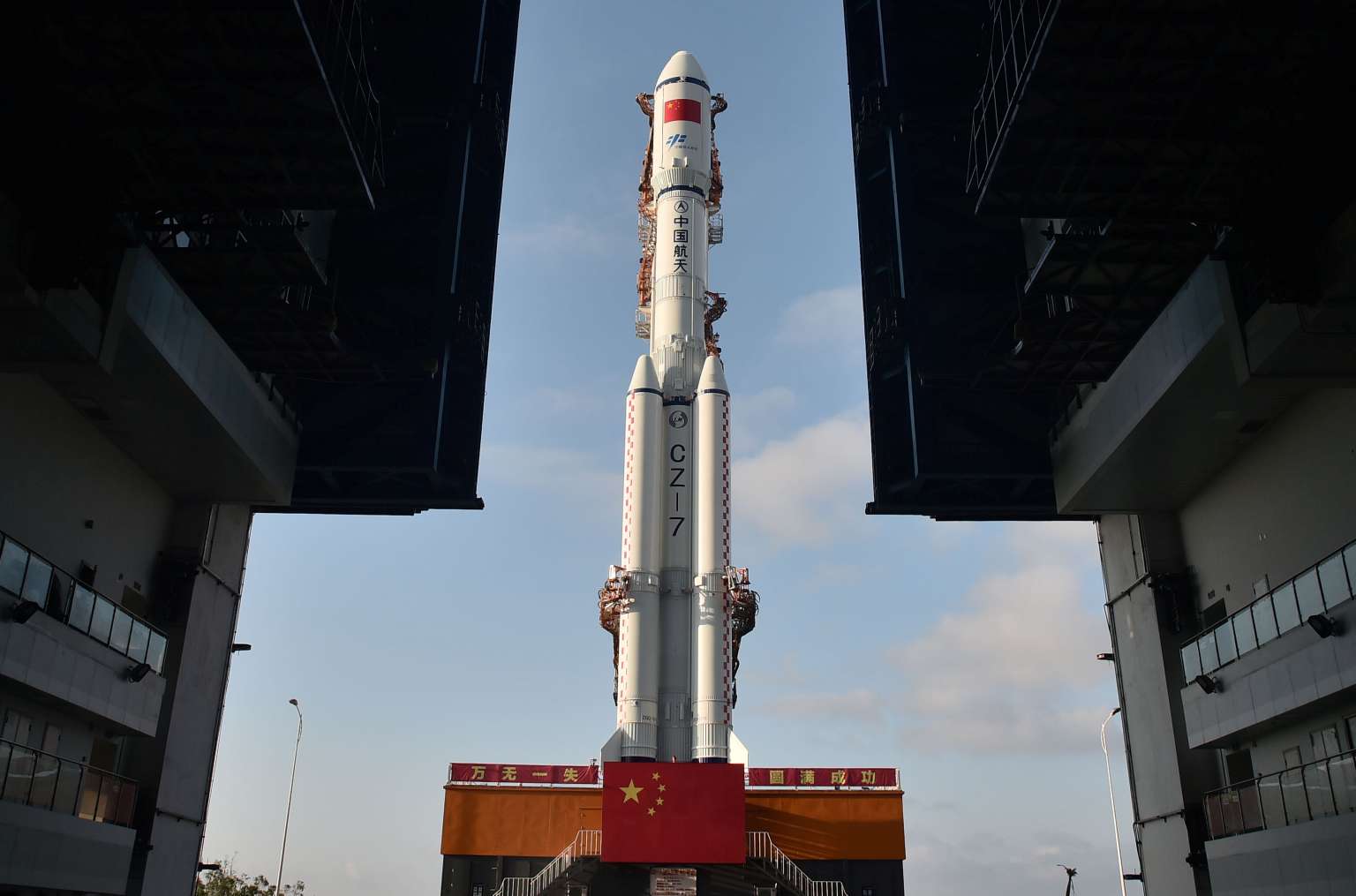China's first cargo spacecraft Tianzhou-1 docks with orbiting Tiangong-2 space lab
Sign up now: Get insights on Asia's fast-moving developments

Long March-7 rocket and Tianzhou-1 cargo spacecraft are seen as they are transferred to a launching spot in Wenchang, Hainan province, China, on April 17, 2017.
PHOTO: REUTERS
Follow topic:
SHANGHAI (REUTERS) - China's first cargo spacecraft docked successfully with the Tiangong-2 space lab on Saturday (April 22), the official Xinhua news agency reported, marking a major step towards Beijing's goal of establishing a permanently manned space station by 2022.
President Xi Jinping has prioritised advancing China's space programme to strengthen national security.
The Tianzhou-1 cargo resupply spacecraft made the automated docking process with the orbiting space lab after it had taken off on Thursday evening from the Wenchang Satellite Launch Centre in the southern island province of Hainan.
The Tiangong-2 space laboratory, or "Heavenly Palace 2", was home to two astronauts for a month last October in China's longest ever manned space mission.
The cargo spacecraft mission provides an "important technological basis" to build a Chinese space station, state media have said. It can reportedly carry six tonnes of goods, two tonnes of fuel and can fly unmanned for three months.
Despite the advances in China's space programme for military, commercial and scientific purposes, China still lags behind the United States and Russia.
In late 2013, China's Jade Rabbit rover landed on the Moon to great national fanfare, but ran into severe technical difficulties.
The US Defence Department has highlighted China's increasing space capabilities, saying it was pursuing activities aimed at preventing other nations from using space-based assets in a crisis.
China insists it has only peaceful ambitions in space, but has tested anti-satellite missiles.

